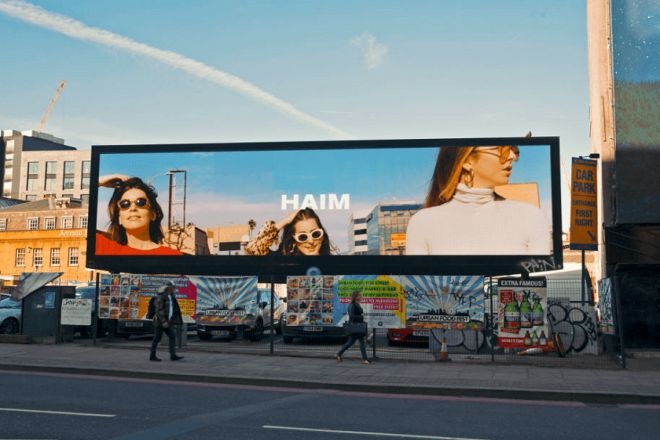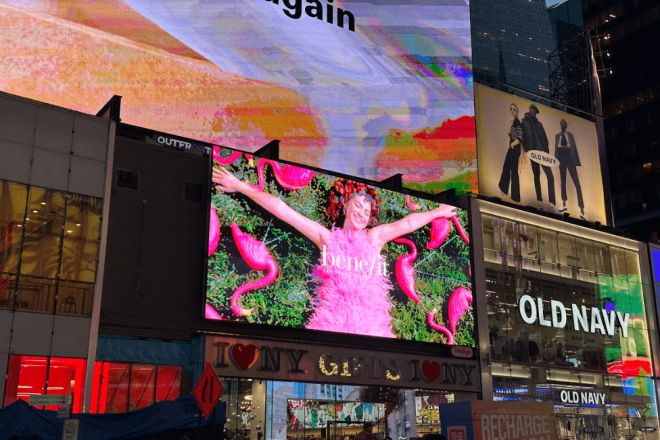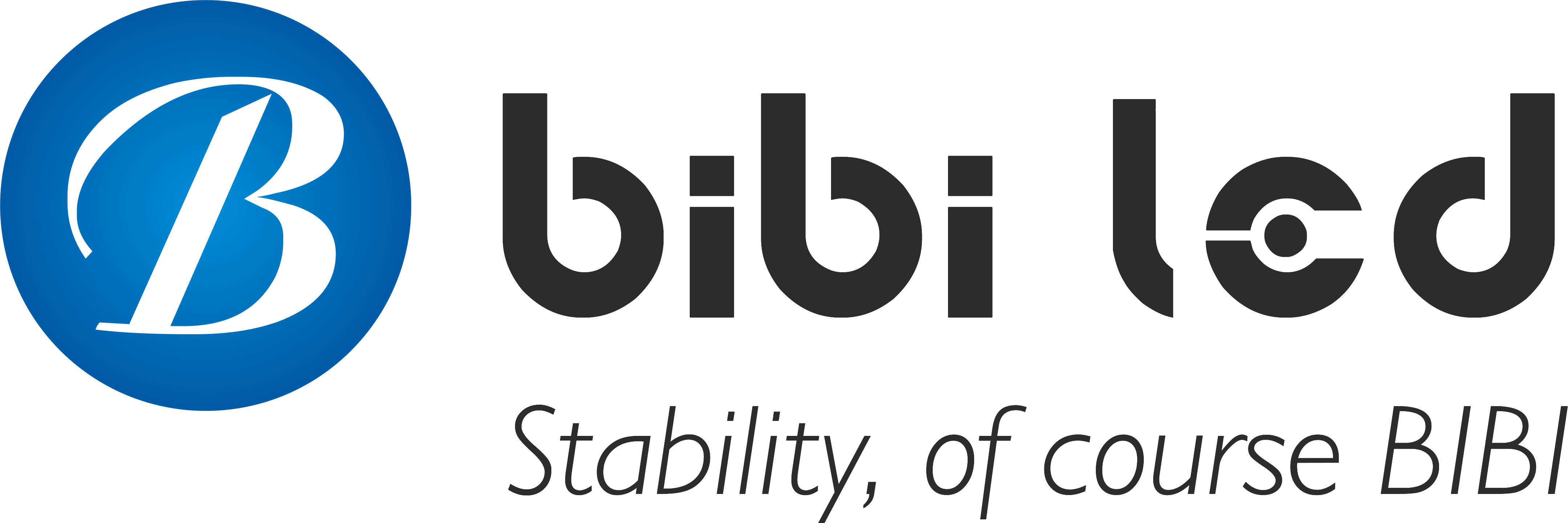Introducción

With the rapid development of information technology, LED display screens, as an important tool for modern visual communication are increasingly widely used. Whether in bustling commercial districts, busy traffic intersections, or solemn stadiums and grand events, pantallas de visualización LED Atrae la atención de la gente con su encanto único.
However, in order for LED display screens to truly play their value in visual communication, their visibility and readability are particularly important.
1. Visibility of LED display screens
Visibility refers to the ability of LED display screens to clearly and accurately identify the display content of the LED display screen in a specific environment. This ability is not only affected by the technical parameters of the display screen itself but also by environmental factors.
Visibility is one of the important indicators for measuring the performance of LED display screens. High-visibility display screens can provide clear and accurate display content in various environments, thereby ensuring the effective transmission of information. On the contrary, low-visibility display screens may not be clearly identified in specific environments, resulting in obstructed information transmission.
1). Technical realization of visibility
1.1). Brightness and contrast adjustment
- Brightness control of LED light source
The brightness of LED display screens can be achieved by adjusting the brightness of the LED light source. The higher the brightness, the better the visibility of the display screen in bright environments. At the same time, the adjustment of brightness also needs to consider factors such as energy consumption and lifespan.
- Impact of contrast on visibility
Contrast refers to the difference in brightness between the brightest and darkest parts of the display. High contrast can make the displayed content more vivid and prominent, thereby improving the visibility of the display. Therefore, when designing and producing LED displays, it is necessary to focus on improving the contrast.
1.2). Viewing angle and viewing distance
- Optimization of viewing angle range
The viewing angle range refers to the angle range in which the displayed content can be clearly seen when viewing the display from different angles. In order to improve the visibility of the display, it is necessary to optimize the viewing angle range to ensure that a clear display effect can be obtained within a wider angle range.
- Determination of the optimal viewing distance
The optimal viewing distance refers to the distance at which the displayed content can be seen most clearly. For display screens of different sizes, the optimal viewing distance is also different. Therefore, in practical applications, the optimal viewing distance needs to be determined according to the size of the display screen and the viewing environment.
1.3). Environmental factors consideration
- The impact of lighting conditions on visibility
Lighting conditions are one of the important factors affecting the visibility of LED displays. Under strong lighting conditions, the brightness of the display screen needs to be increased accordingly to ensure the visibility of the displayed content. At the same time, different lighting conditions may also affect the contrast of the display screen.
- Color temperature and environmental adaptation
Color temperature refers to the degree of warmth or coldness of the color displayed on the display. In different environments, people’s perception of color temperature will also be different. Therefore, when designing and producing LED displays, it is necessary to consider the adaptability of color temperature and environment to ensure good display effects in different environments.
1.4). Application scenarios of visibility
- Outdoor billboards and signs
In outdoor environments, LED displays need to withstand various harsh weather conditions and strong lighting conditions. Therefore, high-visibility LED displays play an important role in applications such as outdoor billboards and signs.
- Traffic lights and signs
Traffic lights and signs need to display information clearly under various light conditions to ensure traffic safety. Therefore, high-visibility LED displays play an irreplaceable role in applications such as traffic lights and signs.
- Sports events and large-scale events
In sports events and large-scale events, LED displays are often used to display game information, advertisements, and other content. Since these events usually attract a large number of spectators, high-visibility LED displays can ensure that the audience can clearly see the display content, thereby providing a better viewing experience.
2. Readability of LED display

Readability refers to the ability of the information content on the LED display to be quickly and accurately understood and received by the observer. It is not only about the clarity of the text but also about the organizational structure, presentation method, and overall visual comfort of the information.
Readability directly affects the efficiency of information transmission of the LED display. A display with high readability can quickly and accurately convey information, reduce the audience’s reading time and difficulty of understanding, and thus improve the efficiency of information transmission.
On the contrary, a display with poor readability may lead to unclear information transmission or even misunderstanding and reduce the efficiency of information transmission.
1). Technical implementation of readability
1.1). Font and font size selection
- Principles of font design
The font design should follow the principles of clarity, readability, and beauty. On the LED display, fonts with moderate stroke thickness, clear structure, and easy recognition, such as Songti and Heiti, should be selected. At the same time, font design should also take into account the resolution and display size of the display to ensure good readability on displays of different sizes and resolutions.
- Determination of font size
The font size should be determined based on the size, resolution, and viewing distance of the display. Generally speaking, the larger the font size, the easier it is to read, but too large a font size may cause the displayed content to be too crowded. Therefore, when determining the font size, it is necessary to find a balance point to ensure the clarity and reading comfort of the displayed content.
1.2). Display content and layout
- Hierarchy and classification of information
The information displayed on the LED display screen should have a clear hierarchy and classification. Important information should be placed in a prominent position, while secondary information can be appropriately reduced or placed in a secondary position.
Through reasonable information hierarchy and classification, the audience can be guided to quickly find the required information and improve the readability of the information.
- Optimization of layout and typesetting
Layout and typesetting are crucial to improving the readability of LED display screens. Reasonable layout and typesetting can make the displayed content clearer and more orderly, reducing the reading difficulty of the audience. When typesetting, attention should be paid to the rationality of word spacing, line spacing, and paragraph spacing to avoid text being too crowded or loose.
1.3). Refresh rate and response time
- The impact of refresh rate on readability
The refresh rate refers to the number of times the LED display screen updates the display per second. A high refresh rate can ensure the smoothness and stability of the displayed content, reduce screen flickering and jitter, and thus improve readability. Generally speaking, the refresh rate of the LED display screen should reach more than 60Hz to ensure a good display effect.
- The impact of response time on dynamic display
Response time refers to the time required for the LED display screen to display the corresponding content from receiving the signal. A shorter response time can ensure the real-time and dynamic effect of the displayed content. In scenarios where information needs to be updated quickly, such as real-time news scrolling, stock market quotes, etc., a shorter response time is particularly important.
1.4). Application scenarios of readability
- Public information display screens
Public information display screens, such as display screens in public places such as subway stations and airports, need to display a large amount of real-time information. Highly readable display screens can ensure that passengers can quickly obtain the required information and improve travel efficiency.
- Commercial display and publicity
In commercial display and publicity, LED display screens usually need to display advertisements, promotional information, and other content. Through reasonable font and font size selection and layout and typesetting optimization, advertising information can be made more eye-catching and attractive, and the publicity effect can be improved.
- Emergency notification and warning system
In emergency situations, such as natural disasters such as fires and earthquakes, LED display screens need to quickly and accurately convey emergency notifications and warning information. Highly readable display screens can ensure that information is received and understood in the first place, providing strong protection for people’s life safety.
3. Why are visibility and readability very important for LED display screens?
Visibility and readability are very important for LED display screens. The main reasons are as follows:
- Information transmission efficiency:
LED display screens are mainly used for the transmission of information, such as advertisements, notifications, traffic information, etc. If the visibility of the display is poor, the information may not be clearly seen by observers at a distance or under different lighting conditions, resulting in the failure of information transmission.
Similarly, if the readability is poor, even if the information is seen, it may be difficult to understand quickly and accurately due to reasons such as font, font size, layout, etc., which reduces the efficiency of information transmission.
- User experience:
In commercial applications, such as shopping malls, exhibitions, etc., LED displays are an important tool to attract customers’ attention. If the visibility and readability of the display are poor, customers may not be able to quickly obtain the required information, which will affect their shopping or visiting experience.
In the public domain, such as traffic signs, emergency notices, etc., the visibility and readability of LED displays are directly related to the safety and convenience of the public. If the information cannot be conveyed clearly and accurately, it may cause misunderstanding or confusion.
- Brand image:
For enterprises, LED displays are part of their brand image. If the display effect of the display is poor, it may leave customers with an impression of unprofessionalism and unreliability, thus affecting the brand image of the enterprise.
- Adapt to different environments:
LED displays usually need to work in various environments, such as indoors, outdoors, strong light, weak light, etc. Display screens with good visibility and readability can ensure clear and accurate information display in different environments, thus meeting various application requirements.
- Legal and regulatory requirements:
In some cases, such as traffic signs, safety warnings, etc., the visibility and readability of LED displays may be subject to strict legal and regulatory requirements. In order to ensure compliance with relevant regulations, it is necessary to ensure that the display screen meets the standards in these aspects.
4. Balance and optimization of visibility and readability

- Mutual influence between the two
Visibility and readability influence and restrict each other in the application of LED displays. On the one hand, visibility is the basis for ensuring that the information on the display screen can be clearly identified, which directly affects the efficiency of information transmission. Only when the display screen has sufficient visibility in a specific environment can the information on it be noticed and read by the reader.
On the other hand, readability determines the degree to which the information is understood and received by the reader. Even if the visibility of the display screen is high, if the information on it is chaotically arranged, the font is too small, or the color is improperly matched, it will make it difficult for readers to quickly and accurately understand the information content, thereby reducing readability.
- The importance of balancing the two
In practical applications, visibility and readability need to be fully considered and balanced. Too high visibility may come at the expense of readability, such as too glaring brightness and contrast may make the text blurry.
While too high readability may also sacrifice certain visibility, such as reducing brightness or contrast to maintain clarity and readability, which may make information difficult to identify in certain environments.
Therefore, when designing and using LED display screens, it is necessary to comprehensively consider the two factors of visibility and readability according to the specific application scenarios and needs to achieve the best display effect and information transmission efficiency.
1). Optimization strategies and methods
- Customize display solutions according to application scenarios.
Different application scenarios have different requirements for the visibility and readability of LED display screens. For example, in applications such as outdoor billboards and signboards, high visibility is required to ensure that information can still be clearly identified at a long distance and under strong light, while in applications such as commercial displays and publicity, higher readability is required to ensure the clarity and attractiveness of advertising information.
Therefore, when designing and using LED display screens, it is necessary to customize the display solution according to the specific application scenario, including selecting appropriate brightness, contrast, font, font size, and other parameters, as well as optimizing the hierarchy and classification of information.
- Using advanced technology to improve display effects
With the continuous advancement and innovation of technology, a variety of advanced technologies can be used to improve the display effects and readability of LED display screens. For example, the use of high-brightness, high-contrast LED light sources can improve the visibility of the display screen.
The use of advanced color matching technology and a color management system can ensure that the display screen can accurately restore the color and details of the image; the use of a high refresh rate and fast response time driving technology can reduce the flicker and jitter of the image and improve readability.
- Perform performance testing and maintenance regularly.
In order to ensure that the LED display screen maintains good visibility and readability for a long time, performance testing and maintenance are required regularly. This includes checking whether the brightness, contrast, color, and other parameters of the display screen are normal, and checking whether the hardware and software of the display screen have faults or abnormalities.
At the same time, the display screen needs to be cleaned and maintained regularly to ensure that its surface flatness and cleanliness meet the requirements.
Conclusión
Through the discussion in this article, it is not difficult to find that visibility and readability are two important aspects of the performance of LED display screens, which affect and restrict each other.
In practical applications, we need to comprehensively consider various factors according to specific application scenarios and needs and take appropriate technical measures and optimization strategies to achieve the best performance of LED display screens.
Finalmente, si quieres saber más sobre las pantallas LED, Por favor póngase en contacto con nosotros.
